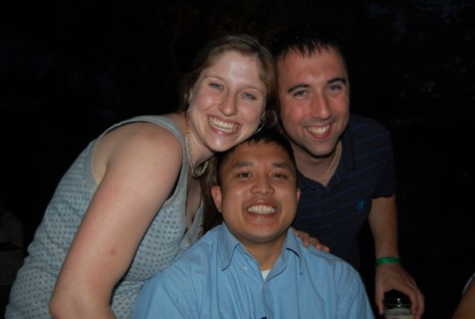Model UN excels in D.C. conference
Published Nov 2, 2011
Students involved in Model United Nations (Model U.N.) traveled to Washington D.C. on the weekend of Oct. 21 for the first conference of the year.
Junior political science and strategic communication double major Michael Dabbs said Model U.N. was set up like the actual United Nations, which is comprised of different committees on which different countries serve. The purpose of the weekend was to imitate what an actual United Nations meeting might be like. Each committee met to discuss and work to reach agreements on how to resolve various topics.
Freshman political science major Kathleen D’Urso said each group was in charge of at least one country, which had been assigned in advance so the group would have ample time to research specific topics. The university represented three countries: Pakistan , Bangladesh and Estonia .
Freshman political science major Emily Cowan said the central point of the conference was to promote diplomacy and global understanding, and her specific committee focused on women’s issues. Cowan said she and her partner represented Estonia and discussed the Commission on the Status of Women. She said the hardest part of the conference was maintaining the character of the country they were representing.
“You have to think about the greater good of your country rather than what you want, which is hard because you don’t always agree with what [the represented country] wants,” Cowan said.
D’Urso said she and her partner were assigned Pakistan, and also focused on issues pertaining to women’s equality. The team researched violence against women and Pakistan’s stance and different resolutions on the matter. They tried to present the information in a way that would interest the United Nations, D’Urso said.
Dabbs said this was his second year in Model U.N. He served as a head delegate on the trip, helping to guide the students at the conference and in the weeks leading up to it. Before the conference, Dabbs and his partner taught a class on the institutions and processes of the United Nations and helped the other teams write position papers, he said. During the conference, they acted as aides to the students who needed help.
D’Urso said the conference had one overall winner, but additional awards were also given. This year each of the three countries the university represented won an award. Pakistan won distinguished achievement awards while Estonia and Bangladesh won honorable mentions.
Dabbs said he was proud of all the delegates’ work because he thought it was difficult for one school to represent three countries and do well. Most schools have the advantage of representing only one country and being able to discuss things together as a whole, he said.
Because the conference was educational rather than competitive, the fact that each delegation won an award was exceptional, he said.
“Given the inexperience that we had -most students were new to Model U.N.- and the size of our group, I think we did extremely well in conference in relation to years past,” Dabbs said.



